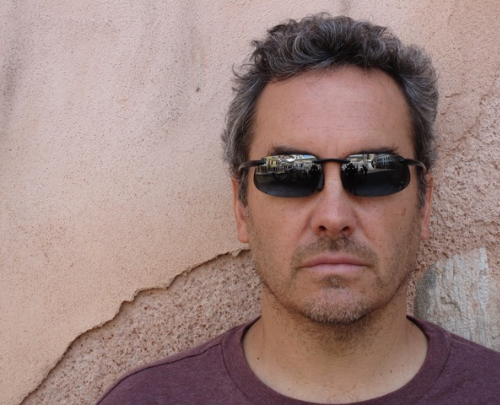In episode 14 we talk with Rafael Núñez from the University of California San Diego about his research into if human understanding of number has developed through biological evolution, or through the evolution of language and culture. His article, “Is There Really an Evolved Capacity for Number?,” was published in the June 2017 edition of Trends in Cognitive Sciences.
Websites
- Rafael’s other publications
- A recent article in Aeon about the paper
- The UCSD press release for the paper
- A New Scientist article on some of the Yupno (Papua New Guinea) work that partially inspired the paper
Related Science
- On Aymara (Andes) “reversed” temporal concepts
- On Yupno (Papua New Guinea) topographic temporal concepts
Bonus Clips
Patrons of Parsing Science gain exclusive access to bonus clips from all our episodes and can also download mp3s of every individual episode.
Support us for as little as $1 per month at Patreon. Cancel anytime.
Patrons can access bonus content here.

We’re not a registered tax-exempt organization, so unfortunately gifts aren’t tax deductible.
Hosts / Producers
Doug Leigh & Ryan Watkins
How to Cite
Leigh, D., Watkins, R., & Núñez, R.. (2018, January 9).Parsing Science – Capacity for Number. figshare. https://doi.org/10.6084/m9.figshare.5915368.v2
Music
What’s The Angle? by Shane Ivers



Rafael's earlier work concerned the Aymara people, an indigenous group living in the Andes mountains. He found that their spatial metaphor of time is the reverse of what it is among most other cultures: namely, for the Aymara, the future lies behind oneself, while the past lies ahead. Doug and I wondered how his study of the Aymara's abstraction of time might have influenced his thinking about numbers as cultural phenomena.@rwatkins says:
Lastly, we asked Rafael what his thoughts and concerns are about the future of the fields of science in which he works as a researcher.@rwatkins says:
Some nonhuman animals - such as Ai the chimpanzee at Kyoto University and the grey parrot Alex at Brandeis University - have been trained in captivity to handle quantities in ways that appear similar to those exhibited by humans. While /some take these/ as signs that that conceptualizing numbers is an evolved capacity among some higher-order animals, Rafael argues that these examples are not about numbers, but rather concern quantity.@rwatkins says:
In Lewis Carrol's "Alice’s Adventures in Wonderland," Humpty Dumpty insists to Alice "When I use a word, it means just what I choose it to mean — neither more nor less," much to her puzzlement. Rafael distinguishes the "prototypical" properties of numbers from those that are not prototypical. We asked him to talk with us about what the familiar sequence of 'one, two, three' says about the definition of numbers.@rwatkins says:
The number line is commonly understood to be a universal and intuitively understood mathematical device. However, in some cultures - such as the Yupno of Papua New Guinea - while people tend to place small quantities of objects on the left endpoint of a number line and mid-size and large ones on the right, they disregard the cardinality of the mid-points. Rafael explains how this demonstrates that the ability to quantify amounts differs from the ability to conceptualize numbers.@rwatkins says:
Numbers are exact symbolic quantifications of a collection of objects. However, other systems of rough and imprecise quantification exist, and we use them every day. Ryan and I were curious to know what led humans to move beyond from such natural quantifiers - like the terms "some," a few," and "many" - to the exact symbolic quantification that numbers afford us.@rwatkins says:
This belief that numbers exist independently of the human mind has come to be called "Plato's Heaven," and its adherents hold that numbers were "discovered" when humans develop the mental capacity to do so through biological evolution. Rafael contrasts this "nativist" view with that of naturalists: those who argue that numbers are instead culturally evolved concepts.@rwatkins says:
Some scientists argue that numbers are eternal and unchanging facts woven into the fabric of the universe itself. Rafael explains that imprecise scientific language has led to this belief.@rwatkins says:
Operationalization refers to the practice by which researchers explain how they define and measure their variables. Here, Rafael talks with us about how developing precise definitions of number-related terms is critical to science.